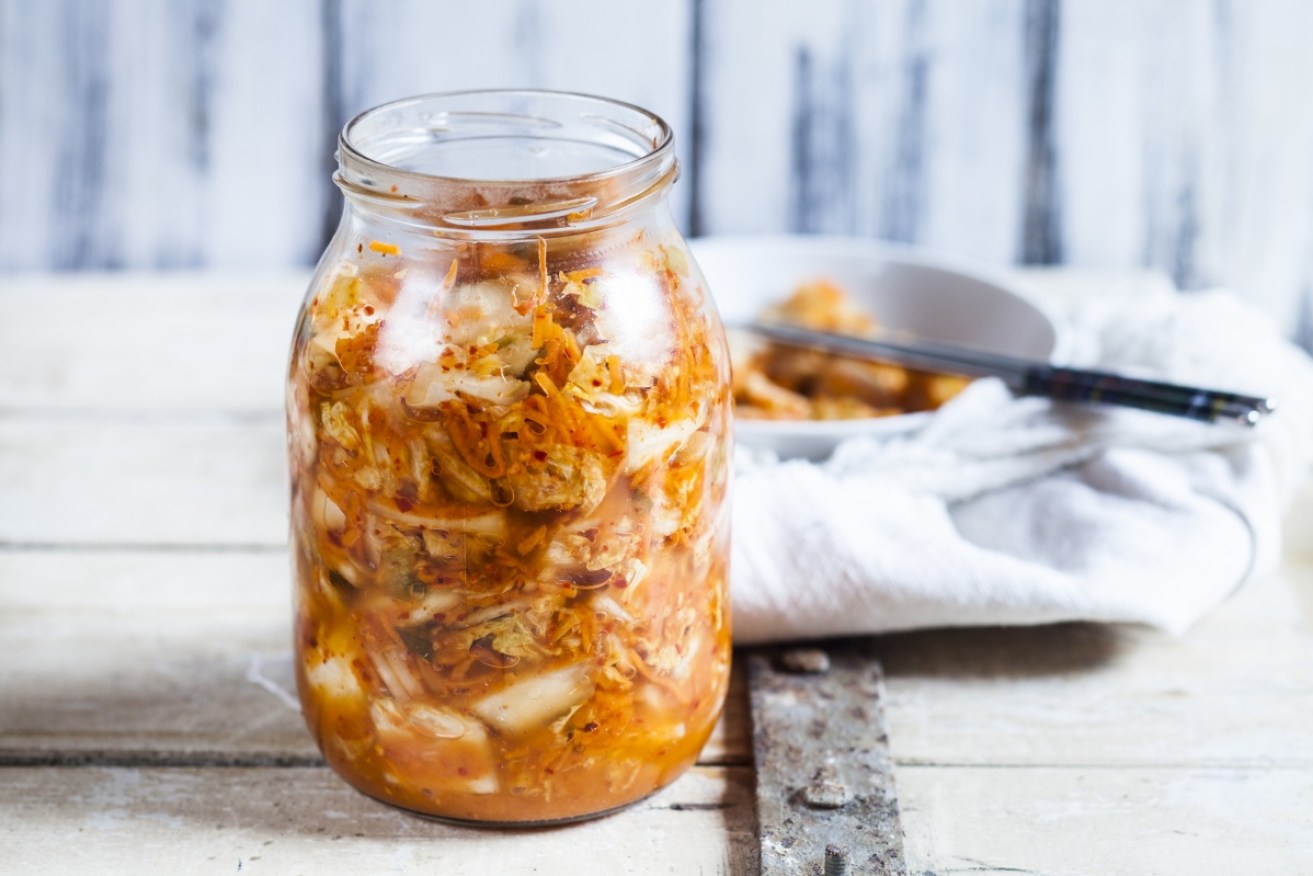Why you need to be cautious with probiotics

Eating kimchi is a popular way to consume probiotics. Photo: Getty
“Probiotic” is a buzzword in gut health. But with our bodies playing host to 100 trillion types of bacteria, it can be difficult to work out whether a probiotic will heal or harm.
There are also many different sources of probiotics, from fermented foods (such as kimchi, sauerkraut and kombucha) to dairy products (such as yoghurt) and, of course, capsules and drinks.
Dr CK Yao, a senior research dietitian at Monash University, said probiotics had been proven to help with many health issues, including digestive symptoms, urinary tract infections and high blood pressure.
However, each person’s ecosystem is complex and unique. So, how your body might react to a probiotic could be very different to the person next to you.
Here’s what you need to know.
Bacteria compete with each other
“When we take different probiotic bacteria strains in a supplement, they interact with other gut bacteria communities for survival,” Dr Yao said.
It is unlikely that probiotic supplements can negatively affect the gut populations of good bacteria, but Dr Yao said more research was needed.
“Often supplements combine two kinds of probiotics that have been studied individually,” she said. “When you mix them together, they may not work in the same way as they do by themselves.”

Yoghurt is another dietary source of probiotics. Photo: Getty
Probiotics can affect men and women differently
Hormones such as oestrogen and testosterone can alter our responses to probiotics. In one Australian study, published in Scientific Reports, researchers found that high gut levels of streptococcus bacteria related to more problems for men but fewer for women.
Victoria University lead researcher Amy Wallis said gut bacteria played different roles in men and women, even when the microbe balance of the gut looked exactly the same.
“We can no longer assume that a certain type of bacteria is going to do the same job in men and women, and now need to consider that each gender may respond differently to the same treatment,” Ms Wallis said.
She recommends consulting a GP before taking probiotic supplements.
Probiotics and brain fog
University of Sydney animal studies have previously found that probiotics might impair memory function. “In rats eating a very unhealthy high-fat, high-sugar diet, a probiotic could prevent some of the adverse effects of the diet on memory,” said Margaret Morris, Professor of Pharmacology at the University of NSW.
“By contrast, rats consuming a healthy diet showed no benefit, and may have even had some negative impacts. So some caution may be justified when using probiotics and more studies are needed to determine their impacts.”

The wrong mix of probiotics might make digestive issues worse. Photo: Getty
Digestive issues might get worse
Some people find probiotics trigger belly issues, including bloating or discomfort. “It might be because the dose of bacteria is too high or because the probiotic strain may be increasing actions like fermentation,” Dr Yao said.
“If this happens, switch to another strain of probiotic bacteria and trial this for another period of four weeks to see if that mix suits your specific microbiome better.”
Prebiotics are just as important
Prebiotics contain natural, plant-based fibres (such as inulin and oligofructose) and they feed the good bacteria in your gut. They are found in foods such as Jerusalem artichokes, asparagus, chicory, garlic, onions, leeks, shallots, legumes, nectarines and watermelon.
“Consumption of prebiotics is just as important as having probiotics in order to support and nourish the growth of favourable bugs in your digestive tract,” Dr Yao said.
Gut bacteria can change very quickly
Harvard University research has found that volunteers seemed to increase the amount of “bad” bacteria in their guts after just two days of eating an animal-based diet of meat and dairy foods, including bacon, ribs and cheese.
By contrast, people who followed a more plant-based or vegetarian diet had a better balance of gut bacteria in their gut.
Dr Yao said this rapid change explained why stool samples taken on one day often don’t provide an accurate picture of what is really going on. It’s also a reminder to eat plenty of vegetables, including leafy greens.
“What’s important to remember is that a probiotic supplement is not a substitute for a nutritionally balanced diet,” she said.








